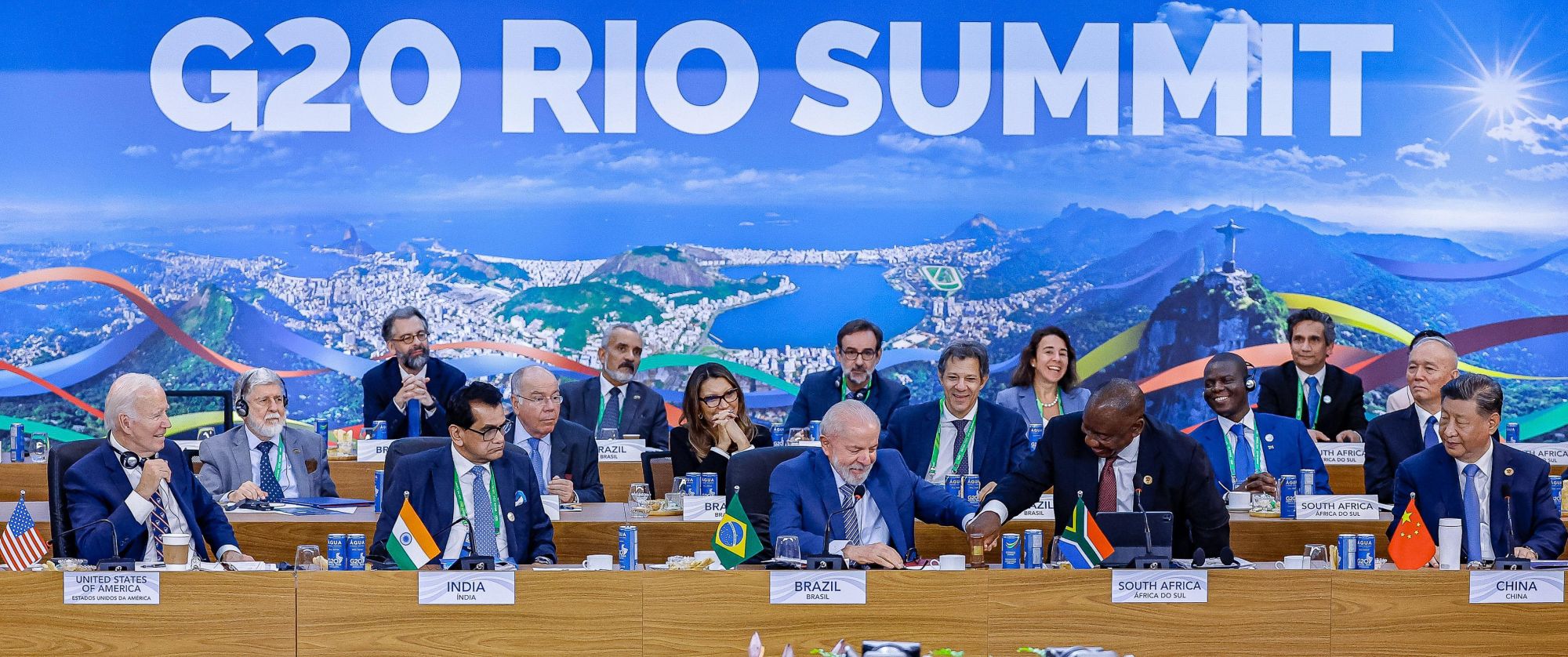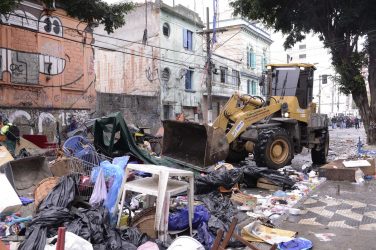The world’s many geopolitical crises and Donald Trump’s imminent return to the White House overshadowed this week’s G20 summit in Rio de Janeiro, Brazil, with leaders using a more neutral tone to describe the conflicts in Ukraine, Gaza and Lebanon in their final joint communique.
Unlike the 2022 summit in Bali, which explicitly condemned Russia’s”aggression” against Ukraine, and last year’s summit in New Delhi, India, which called on G20 members to shun the use of force, Brazil’s G20 declaration avoided direct blame.
Instead, it vaguely referred to the “suffering” caused by the conflict — a likely compromise to achieve consensus from G20 members, especially those aligned with Moscow.
While the summit was underway, Ukraine used — for the first time — longer-range US missiles against Russian territory, prompting Moscow to revise the Kremlin’s nuclear doctrine, setting out new conditions for how nuclear weapons would be used. This escalation caused consternation among G20 leaders.
Ukraine at a crossroads as Trump return to White House looms
Creon Butler, director of the global economy and finance program at the London-based Chatham House think tank, said the communiqué had already been agreed by the working groups. “After the latest barrage of missiles, some European countries wanted to reopen the text for more specific criticism of Russia, but the Brazilian presidency didn’t want to do so,” he said.
Major geopolitical issues divide G20 leaders
The final communiqué hardly mentioned Israel, which has been criticized for its tactics against the Iran-backed Hamas and Hezbollah in the conflicts in Gaza and Lebanon. G20 leaders did, however, reaffirm the urgent need to boost humanitarian aid to the region, called for cease-fires and emphasized support for a two-state solution between Israel and the Palestinians.
Argentine President Javier Milei, known for his libertarian views and skepticism toward multilateral organizations, even signed the final communiqué. However, he later issued a statement, saying he did not support several points in the declaration.
“Milei signed the document. I would call that a victory,” Tomas Marques, a research fellow at GIGA Institute for Latin American Studies in Hamburg, Germany, said, referring to the president’s previous criticism of the G20.
Marques also said the Rio summit had achieved some “good results,” considering the forum’s limits and the numerous conflicts and economic issues that dominated the talks.
Lula pushes tax, climate and poverty relief
And while G20 host, Brazilian President Luiz Inacio Lula da Silva, will have partially fulfilled his promise to bridge the gap between the West and the so-called Global South over the most pressing issues, his real achievement comes from agreements on topics pushed under Brazil’s G20 presidency.
A cause close to Lula’s heart is the Global Alliance Against Hunger and Poverty, an initiative launched in Rio on Monday to help lift incomes and food availability in the world. In the final communiqué, the G20 leaders emphasized their commitment to eradicating poverty and hunger, calling for new funding pledges and for other countries not yet participating to join the global effort.
“The fact that it [poverty and hunger relief] got such strong support is an indication that at the moment, there is a kind of consensus that groups like the G20 need to tackle this issue,” Butler said.
As Trump awaits, climate funding gets Biden’s backing
Much of the chatter on the sidelines of the summit was around Trump’s upcoming second term, as concerns grow that his likely protectionist policies will undermine relations with allies as well as China.
Despite this, Wolfgang Ischinger, former German ambassador to the US and ex-chairman of the Munich Security Conference, said there was no “a sense of panic” in Rio.
“I think everybody believes that we can and we will, on the basis of what happened eight years ago, be able to work with [US President-elect] Donald Trump,” Ischinger said.
Rio may have been the last chance for US President Joe Biden to back policies that Trump is more hostile to, like climate change and the proposed tax on billionaires. Biden told the gathering that developing countries need “enough firepower and access to capital” to protect their nations from the effects of climate change.
COP29 negotiators urge China to pay its climate bill
The G20 leaders recognized the need for trillions of dollars in climate finance for low-income countries but failed to mention the need to transition away from fossil fuels. While the last point may have been welcomed by Trump, the US president-elect is set to wind down US financing of climate initiatives, which could now be an excuse for other countries to follow suit, citing their many domestic challenges.
“Because of the economic stress that advanced economies are under and the debt taken on during the pandemic, the likelihood of a step change in amounts of international public finance for climate action is pretty unlikely,” said Butler.
New tax on ultra-rich moves forward
Lula continued the push for a new tax on the world’s wealthiest people, who French economist Gabriel Zucman estimates pay an effective tax rate of just 0.3% of their wealth. The proposed levy could raise up to $250 billion (€237 billion) annually from the nearly 2,800 billionaires globally. Their combined fortune is some $13.5 trillion, according to the Forbes World’s Billionaires List.
Advocates for the wealth tax have said the funds raised could be used to tackle growing global inequalities and climate projects, especially among heavily indebted low-income countries. And while the final communiqué said G20 would “seek to engage cooperatively to ensure that ultra-high-net-worth individuals are effectively taxed,” the leaders didn’t create a binding agreement on implementing a global wealth tax.
The anti-corruption watchdog Transparency International criticized G20 leaders for not addressing corruption and dirty money in the wealth tax plan and called on South Africa, the holder of the G20 presidency in 2025, to make anti-corruption a priority.
“The G20 has the power to spearhead actions on illicit financial flows, and anything less is lip service to sustainable development,” said Maíra Martini, Transparency International’s Head of Policy & Advocacy.
While the final G20 communique is purely political, GIGA’s Marques argued that it could now be a “useful tool to help advocate for the wealth tax to pressure governments that are against the proposal — like Germany, the United States, the United Kingdom, and Canada.”
However, with tax affairs being fiercely guarded at the national level, concerns about hurting economic growth, and administrative costs, Butler was doubtful that any binding agreement on a billionaire tax would be forthcoming.
“Even within a very aligned group of countries like the EU, it is difficult to get common approaches to taxation. So I’m skeptical that it can be done globally, and even more skeptical for when Trump returns to office,” he said.
DW










